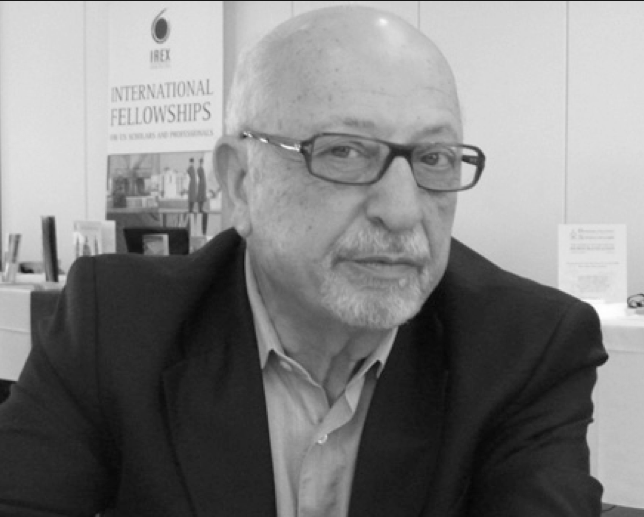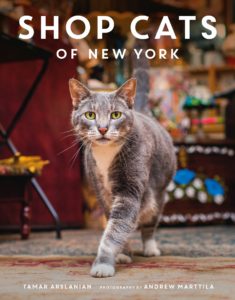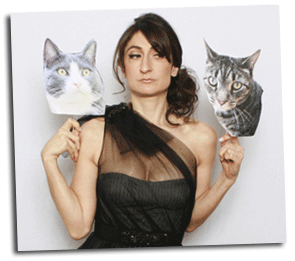
(source: www.agos.com.tr) I think he has a feline look about him don’t you? Our last name is “Son of the Lion” after all…
No, this is not the normal fare of this blog. Let me explain. The article below was written by my father, Doctor Artin Arslanian (The PhD kind – he never uses the title for fear he’ll be called upon to save a life on a plane one day) and originally posted by Today’s Zaman, a liberal Turkish website on July 18, 2010.
It’s a very progressive piece as it pertains to Armenian’s perspective on the Genocide. In it he recalls his father, who was orphaned by the Turks, being haunted his entire life by the memory of his younger brother’s cries as they were separated from one another.
Given April 24th, 2015 is the 100th Anniversary of the Armenian Genocide, I wanted to revisit the piece. Sadly for some reason or another it’s no longer on the website, and along with it have vanished the wonderful comments left by Turks and Armenian’s alike.
I’m reprinting it here because not only will it tell you about me and where I come from – and the sheer chance by which I’m on this earth – but to ensure not vanish from the internet as long as I’m around.
*******************************************************************************************
During my childhood in Lebanon, a recurring dream would wake up my father in the middle of the night.
He dreamt of the day when American missionaries rescued him while he was walking in the Syrian desert as a 6-year-old, holding his younger brother by the hand.
He and his brother were the only family survivors from the deportation and massacre of Armenians by the Ottoman government during World War I. Following a medical examination, the missionaries separated my father from his brother, who had fallen ill. His brother had in vain struggled to stay with him. He was forcibly taken away for medical treatment while yelling, “Brother, don’t leave me!” until his voice faded in the distance.
My father, who was placed in an orphanage in Lebanon, never saw his brother again. But his brother’s parting cry haunted him the rest of his life. He named me, my brother and sister after his father, brother and mother. This was his way of making his family whole again. His anguish left an indelible mark on me.
I didn’t need my father’s nightmares to be reminded of the tragic fate of my ancestors during World War I. The Turkish government’s denial of the Armenian genocide dominated the lives of Armenian communities all around the world. A growing hatred of all things Turkish and the quest to prove the Ottoman government’s responsibility for planning and implementing the genocide preoccupied me, my Armenian friends and, indeed, the Armenian diasporas, the survivors of the genocide and their progeny.
To underscore our value and contribution to society at large — and reaffirm our self-esteem — we took pride in the successes of individuals of Armenian heritage the world over. We never tired of reminding non-Armenian friends and acquaintances that the composer Aram Khachaturian, the film director Rouben Mamoulian, the world chess champion Tigran Petrossian, the Soviet Politburo member Anastas Mikoyan, the French torch singer Charles Aznavour, the writer William Saroyan and a slew of famous others were Armenians. Some of us even insisted that a number of famous non-Armenians were indeed Armenians in disguise. This list included World War II German Gen. Heinz Guderian (his family name had the common Armenian “ian” ending ) and the American actor Gregory Peck (we claimed his real name was Krikor Ipekian).
“Don’t speak Turkish! Remember the 1 million!” proclaimed slogans on the walls of many buildings in Bourdj-Hammoud — the Armenian enclave in the suburb of Beirut where I grew up. We addressed in Armenian the survivors who spoke only Turkish. In the process of teaching them Armenian we learned Turkish from them before we learned Arabic — the language of our host country — in school!
In Armenian elementary and secondary schools we sang revolutionary songs and pledged to die fighting for the liberation of the historic Armenian provinces from Turkey and the Soviet Republic of Armenia from Russian control. The hatred of Turks and all things Turkish dominated our lives. I, along with my friends, wanted the civilized world to do us justice by helping us liberate Soviet Armenia and forcing the Turkish government to admit to the crimes of the Ottoman government and make reparations.
However, there came a rude awakening for my generation with the collapse of the Soviet Union and the declaration of Armenia’s independence in 1991. Few of those in the Armenian diasporas who were preaching a crusade for the liberation of Armenia left their comfortable lives in the Middle East, Europe and the United States to go and live in the Republic of Armenia. Moreover, over 20 percent of the population of the new republic (most of them educated and skilled citizens) emigrated to Russia and a number of other countries in search of a decent livelihood.
Over time I came to understand that the pursuit of national and individual interests of political leaders is the driving force of international relations. Sure, in recent years several Western governments have officially recognized the Armenian genocide. However, domestic political considerations or foreign policy objectives (like the goal of keeping Turkey out of the EU) rather than a commitment to rectifying an historical injustice, appear to be the primary reasons for these actions. After all, why had these governments ignored the Armenian genocide until now?
The desire to safeguard or enhance national strategic interests explains why US presidents — Bush, Clinton and Obama — while promising to recognize the Armenian genocide during their presidential campaigns have, once in office, successfully fought congressional legislation recognizing the Armenian genocide. The US government doesn’t want to antagonize Turkey, an important strategic ally against potential threats from Russia, Iran and Afghanistan.
Many tragedies in 20th century
The Armenian case is the first of many such tragedies in the 20th century. My father’s anguish is not unique. I cannot forget the past — but have learned to refuse to be victimized by it. Focusing all my energies to the task of forcing the Turkish government to reverse its policy of denial is self-defeating and perpetuates my emotional and intellectual self-incarceration. I have shed the culture of victimhood and freed myself from the oppressive weight of our history.
As Hrant Dink, the Armenian-Turkish reporter who was assassinated by a right-wing Turkish nationalist in January 2007 in İstanbul, stated a few months before his death, the issue of the Armenian genocide is not our problem — it is Turkey’s problem. Let the Turks come to terms with their history by freeing it from their self-manufactured myths, reassess their past and transform their state from an ethnically exclusive home for Turks alone into an inclusive one for different ethnic and religious groups who consider themselves the citizens of Turkey. But while Dink was mourned by Armenians all over the world and even by a large number of Turks, his message — as far as the Armenian diasporas are concerned — has fallen on deaf ears.
Dink’s was not a pipe dream. There are harbingers of fundamental changes brewing in Turkey at the popular level. Many Turks are questioning the ethnocentrism of their government and arguing for a genuinely open and democratic society which is no longer defined by ethnicity and religion. Just this year a conference on the Armenian genocide was held in Ankara. Public commemorations of the genocide were held in İstanbul (one organized by the Human Rights Association of Turkey, another a candlelight vigil held by Turkish intellectuals). Moreover, a number of Turkish scholars are arguing against the official policy of denial of the Armenian genocide and thousands have signed an apology on the Internet for the “great catastrophe” that befell more than a million Armenians during World War I. The use of the term “great catastrophe” rather than “genocide” protects these people from government prosecution — but in poor imitation of the bard, genocide by any other name… is still genocide.
I cannot forget my father’s nightmares. From time to time I still hear the cry, “Brother, don’t leave me!” But I no longer harbor hatred against anyone.
* Artin H. Arslanian is the former Academic Vice President at Marist College in Poughkeepsie, NY where he is currently a professor 20th Century British History.






8 Responses to “Of Turks and Armenians” (Not About Cats)